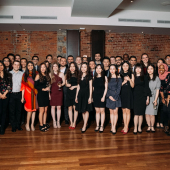For the first time in its 12-year history, the Times Higher Education World University Rankings (THE) have a British institution topping the list, with the University of Oxford preventing the California Institute of Technology from once again achieving first place, an achievement it has earned for the past five straight years.
As the United Kingdom’s leading publication for higher education, THE holds an enormous amount of sway for the perception of educational excellence across the globe, and it is with some shame for British institutions that one has never before topped the list.
American institutions have led the way in the rankings every year, and as such the top 10 contains six from the US, with the tenth spot shared by a further two. The California Institute of Technology slips to second (2) after its reign, followed by Stanford in third (3). The majority of the top 10 remains fairly static since last year. MIT (5), Harvard (6) and Princeton (7) continue to prove the educational vigour of the American North-east.
The University of Chicago and University of California, Berkeley, share tenth (10) position, with Berkeley showing a great improvement from their thirteenth place last year.
The United Kingdom takes up three of the spots. In addition to Oxford (1), the University of Cambridge maintains its fourth (4) position, with Imperial College London retaining eighth (8). Switzerland rounds out the list as ETH Zurich comes in ninth (9).
Rankings like these often feed into the general perception of how good a country’s education is and can affect students’ choices more generally. The US and UK obviously both hold excellent higher education institutions, but Nicola Dandridge, chief executive of Universities UK warns of the growing improvement of universities all over the world, saying that rankings “cannot tell the whole story about the strength of our sector and universities’ positions will vary from one international table to the next”.
Particularly of note is the improvement of Asian universities. Phil Baty, editor of the THE rankings commented that “The UK will have to watch out for Asia’s continuing ascent. Although the notion of Asia as the ‘next higher education superpower’ has become something of a cliché in recent years, the continent’s rise in the rankings is real and growing.”
As valuable as these rankings can be, it’s vital that they are treated with some perspective. Although they can be worthwhile when viewed as a general overview, that is not to say that those that top the list will necessarily be the perfect places for a specific individual.
Despite the amount of effort and diagnostics these rankings take, they are trying, in essence, to boil down a long and varied experience to a series of numbers. No one is denying the success of Oxford, or the California Institute of Technology or any other institution listed; they are undoubtedly excellent schools. It is just important to remember not to solely rely on these sorts of tables when making your decision.
There are numerous university rankings available, and the things that they measure vary wildly. Some measure research achievements, student satisfaction, web presence, academic reputation and some measure how successful the graduates of the university go on to be.
These measurements can often be difficult to translate into pure data, and although rankings like the THE or the QS World University Rankings do a sterling job of doing so, they can only ever hope to produce a snapshot of the experience at a university.
Those looking for a university place should view university rankings as one of a number of resources to use to get a sense of the options available. The University of Oxford are likely to see an increase in applications as a result of these rankings, but it will not be the best university for quite a few of those applicants, as fantastic an institution as it is.
To make the best choice possible, a student will have to take in as much information about university life as they possible can. This means speaking to friends, family, professors and potential alumni. Visiting websites, speaking to recruitment officers and attending university fairs are also great places to get the information needed to successfully negotiate one of the most crucial decisions of life.










